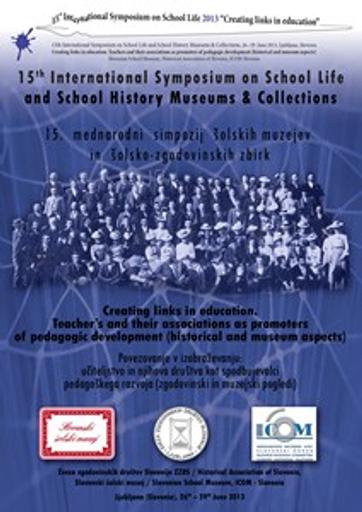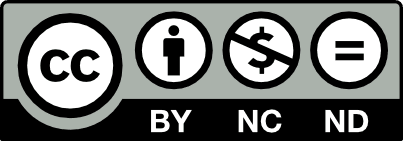/
Dogodki
/
Konference
Primary School Teachers' Associationism in Italy from Unification to Fascism: Its Origin and Development between Processes of Localization and Nationalization

Avtor(ji):Alberto Barausse
Soavtor(ji):Ulla Nitsch (mod.)
Leto:2013
Založnik(i):Slovenski šolski muzej, Ljubljana, Zveza zgodovinskih društev Slovenije, Ljubljana, ICOM Slovenija, Celje, Inštitut za novejšo zgodovino, Ljubljana
Jezik(i):angleščina
Vrst(e) gradiva:video
Avtorske pravice:

To delo avtorja Alberto Barausse je ponujeno pod Creative Commons Priznanje avtorstva-Nekomercialno-Brez predelav 4.0 Mednarodna
Datoteke (1)
Opis
This paper summarizes the most recent studies on primary school teachers’ associative phenomenon in
Italy between Unification and Fascism. The aim of this paper is to trace the evolution of associationism and the
transition from mainly localistic, mutualistic modes of social organization to more professional and nationally
organized groups. This process started at the end of the forties of the Nineteenth Century in the State of
Piemonte, thanks to the activism of inspectors, teachers or liberal politicians which believe in the value of
instruction like a weapon to better economic, social and politic overview. In this period the members of the
association undertook for the spread of primary and popular education a higher professional qualification of
teachers. They promoted kindergartens, evening schools and Sunday schools, elementary male e female schools;
but they drew up plans to build news “normal” schools and news forms of mutual aid. After the birth of the
italian State, the teacher’s associationism multiplied, expecially in urban center like Milan, Naples, Rome,
Florence, Genua ext. But only since the eighties of the Nineteenth Century began the early experiences at
national character. In particular, we will take into account some of the most significant examples of primary
school teachers’ associations between the 19th and 20th centuries such as the Associazione Nazionale fra gli
insegnanti elementari d’Italia born in 1880, and the Unione Magistrale Nazionale which was active from 1901
to 1925.
Metapodatki (12)
- identifikatorhttps://hdl.handle.net/11686/37652
- naslov
- Primary School Teachers' Associationism in Italy from Unification to Fascism: Its Origin and Development between Processes of Localization and Nationalization
- L’associazionismo degli insegnanti elementary in Italia dall’unificazione al fascismo. Origine e sviluppo tra spinte localistiche e processo di nazionalizzazione
- ustvarjalec
- Alberto Barausse
- soavtor
- Ulla Nitsch (mod.)
- predmet
- zgodovina
- šolstvo
- muzej
- history
- school system
- museum
- opis
- Il contributo prende le mosse dagli studi più recenti sul fenomeno dell’associazionismo degli insegnanti in Italia tra unificazione e il fascism. Lo scopo del contributo è quello di tracciare le linee evolutive dell’associazionismo e il suo passaggio dal carattere fondamentalmente localistico e mutualisitco a quello di una organizzazione professionale e sindacale fondata su basi nazionali. Questo processo è stato avviato sin dagli anni Quaranta dell’Ottocento in alcune realtà preunitarie come il Regno del Piemonte e grazie all’attivismo di ispettori, insegnanti ed esponenti politici liberali che credevano profondamente nell’istruzione come valore e fattore di sviluppo economico, sociale e politico. In questo periodo i membri dell’associazione si impegnarono nella diffusione delle diverse forme di istruzione ed educazione popolare. Essi promossero asili d’infanzia, scuole serali e domenicali, scuole primarie maschili e femminili; ma progettarono anche programmi di costruzione delle nuove scuole normali per formare gli insegnanti e nuove modalità di mutuo soccorso. Dopo la nascita dello Stato italiano l’associazionismo degli insegnanti si moltiplicò, soprattutto nei centri urbani come Milano, Napoli, Roma, Firenze, Genova, ecc. Ma solo all’inizio degli anni Ottanta iniziarono esperienze a carattere nazionale. In particolare saranno prese in esame alcuni esempi più significativi come la Associazione Nazionale fra gli Insegnanti elementari d’Italia nata nel 1880 a Roma e l’Unione Magistrale Nazionale che fu attiva dal 1901 al 1925.
- This paper summarizes the most recent studies on primary school teachers’ associative phenomenon in Italy between Unification and Fascism. The aim of this paper is to trace the evolution of associationism and the transition from mainly localistic, mutualistic modes of social organization to more professional and nationally organized groups. This process started at the end of the forties of the Nineteenth Century in the State of Piemonte, thanks to the activism of inspectors, teachers or liberal politicians which believe in the value of instruction like a weapon to better economic, social and politic overview. In this period the members of the association undertook for the spread of primary and popular education a higher professional qualification of teachers. They promoted kindergartens, evening schools and Sunday schools, elementary male e female schools; but they drew up plans to build news “normal” schools and news forms of mutual aid. After the birth of the italian State, the teacher’s associationism multiplied, expecially in urban center like Milan, Naples, Rome, Florence, Genua ext. But only since the eighties of the Nineteenth Century began the early experiences at national character. In particular, we will take into account some of the most significant examples of primary school teachers’ associations between the 19th and 20th centuries such as the Associazione Nazionale fra gli insegnanti elementari d’Italia born in 1880, and the Unione Magistrale Nazionale which was active from 1901 to 1925.
- založnik
- Slovenski šolski muzej
- Zveza zgodovinskih društev Slovenije
- ICOM Slovenija
- Inštitut za novejšo zgodovino
- datum
- 2013
- 26. 06. 2013
- tip
- video
- jezik
- Angleščina
- jeDelOd
- pravice
- licenca: ccByNcNd
